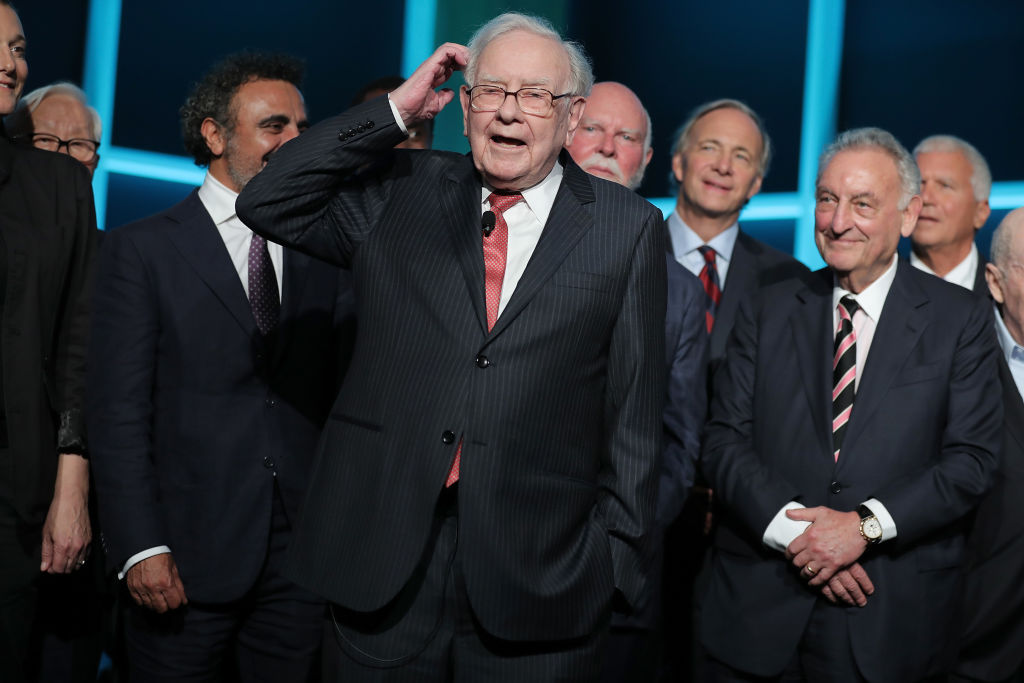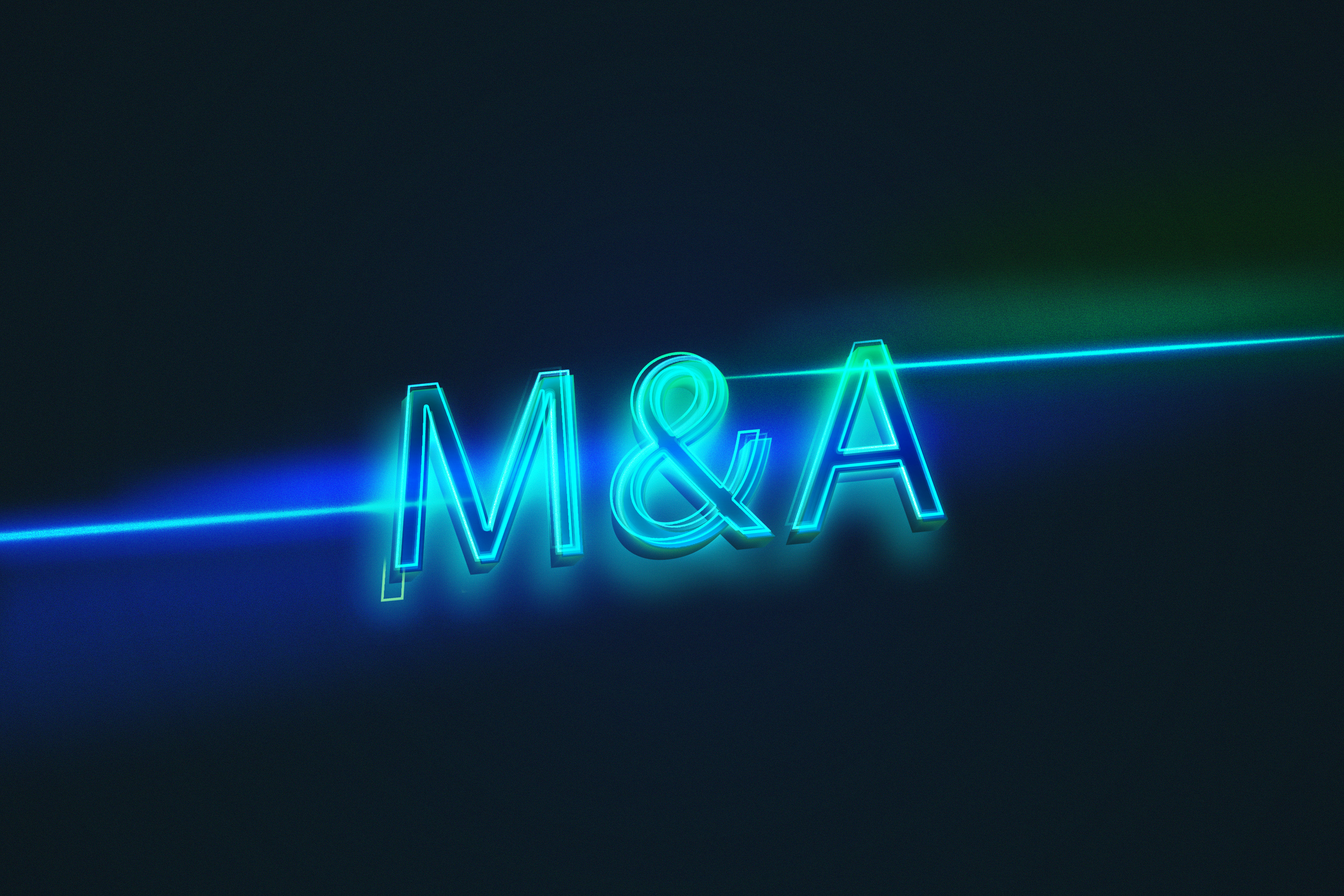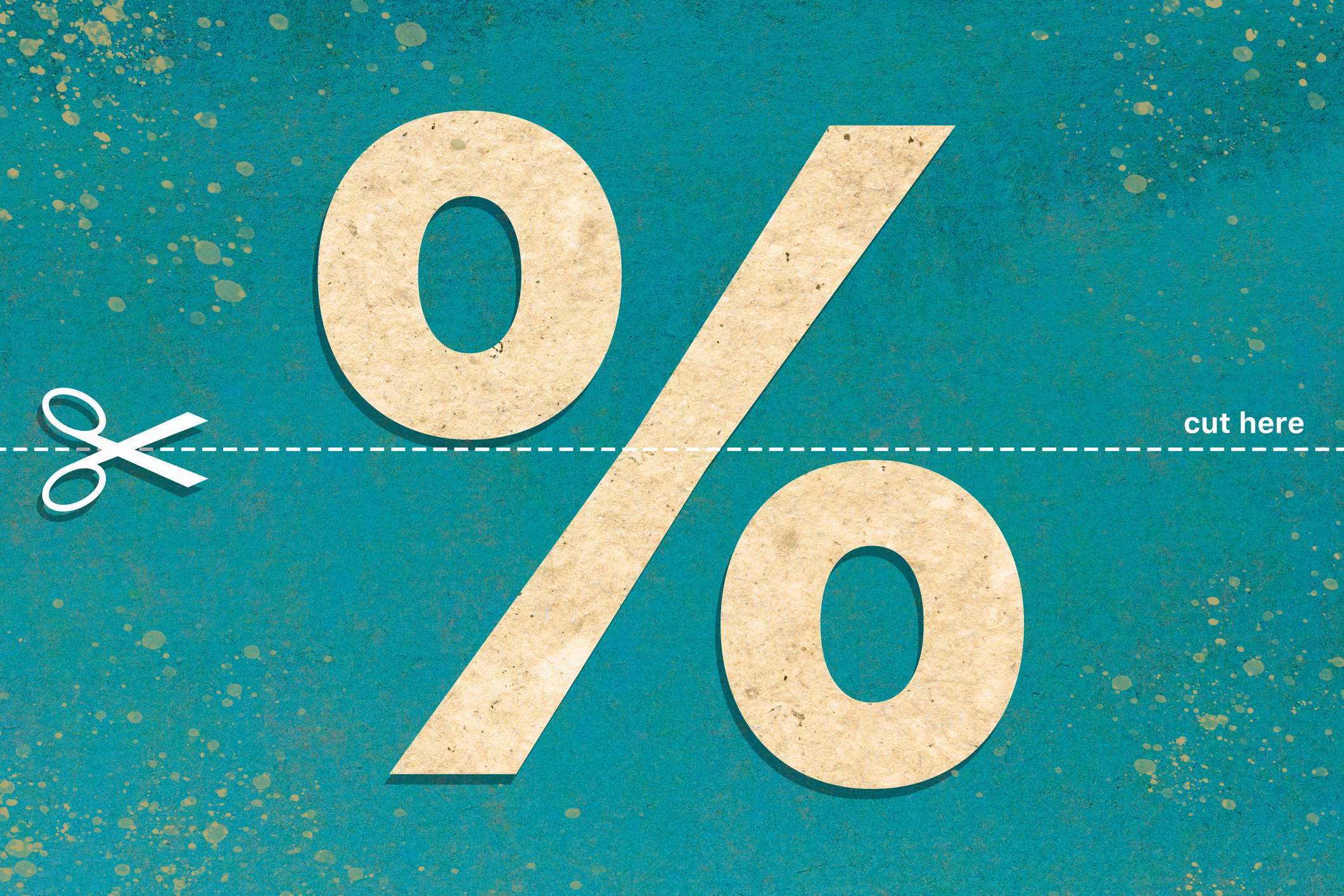Warren Buffett Advice: Why You Should Pick Businesses, Not Stocks
Can you beat the averages? Warren Buffett can. What can mere mortals learn from his success?


Profit and prosper with the best of Kiplinger's advice on investing, taxes, retirement, personal finance and much more. Delivered daily. Enter your email in the box and click Sign Me Up.
You are now subscribed
Your newsletter sign-up was successful
Want to add more newsletters?
Warren Buffett, the chairman of Berkshire Hathaway (BRK.A, BRK.B), is the most successful investor of our time.
His daughter, Susan, worked as my assistant when I was the publisher of a magazine 40 years ago.
Just before she got married, Susie told me she worried that her fiancé's parents had bought a couple of shares of Berkshire stock – and what if it tanked?
From just $107.88 $24.99 for Kiplinger Personal Finance
Become a smarter, better informed investor. Subscribe from just $107.88 $24.99, plus get up to 4 Special Issues

Sign up for Kiplinger’s Free Newsletters
Profit and prosper with the best of expert advice on investing, taxes, retirement, personal finance and more - straight to your e-mail.
Profit and prosper with the best of expert advice - straight to your e-mail.
At the time, the price of the A-listed shares was about $1,000 apiece. Today, it's $771,315 a share. I hope the in-laws hung on.
In his latest annual report, Warren Buffett calculates that the average yearly gain in market value from his acquisition of Berkshire in 1965 through the end of 2024 was 19.9%, compared with 10.4% for the S&P 500 – an astounding difference, matched by no one of whom I'm aware. And Berkshire beat the market in two-thirds of the years.
First, let’s understand Berkshire Hathaway Inc.
Buffett writes that in 1965, it was a "one-trick pony, the owner of a venerable – but doomed – New England textile operation." Buffett switched to insurance and bought National Indemnity, a company he still owns.
Today, Berkshire has three major kinds of investments: cash (a war chest of $334 billion as of December 31, 2024); companies that Berkshire operates and typically owns in full, ranging from GEICO to BNSF Railway to See's Candies; and publicly traded stocks that you can buy yourself.
At last count, Berkshire owned shares of nearly 40 different public companies, but a few dominate, with just five stocks accounting for 70% of the value of Buffett's stock holdings: Apple (AAPL), American Express (AXP), Bank of America (BAC), Coca-Cola (KO) and Chevron (CVX).
Buffett doesn't worry about concentration. He likes to quote the actress Mae West: "Too much of a good thing can be wonderful!"
But the overall portfolio (operating companies plus stocks) is certainly diversified by sector. He owns tech, banks, energy companies, consumer-goods firms, health care, automakers, retailers, media, railroads, charter jets, furniture, homebuilders, insurance and more.
Think like a partner
Buffett's goal, as he wrote in the Chairman's Letter of Berkshire's 2022 annual report, "is to make meaningful investments in businesses with both long-lasting favorable economic characteristics and trustworthy managers." The italics are his – and they’re essential.
Buffett thinks of investing not as buying a symbol with a number attached but as becoming a silent partner in a business.
"Charlie and I are not stock-pickers; we are business-pickers." (Charlie Munger, Buffett's longtime partner, passed away on November 28, 2023; Buffett, the youngster, turned 94 in August 2024.)
The great advantage of owning publicly traded businesses, he writes, is that you can buy pieces of them – from time to time – "at wonderful prices."
Buffett’s mentor, the Columbia University scholar Benjamin Graham, used a metaphor in his 1949 book, The Intelligent Investor, to explain why.
Imagine a character called Mr. Market who is manic-depressive. Some days, he buys stocks in a mood of euphoria, pushing their prices to absurd heights; other days, he is depressed or panicked and sells at absurd depths.
In the latter instances, Mr. Market presents opportunities for you to buy, especially businesses that throw off cash.
In his 2022 annual report, Buffett uses Coca-Cola as an example. Between 1987 and 1994, he bought $1.3 billion worth of shares and never bought any more. In 1994, Coke’s dividend came to $75 million for Berkshire. In 2022, the payout from those shares was $704 million.
"Growth occurred every year, just as certain as birthdays. All Charlie and I were required to do was cash Coke's dividend checks." The value of Buffett's Coke shares grew to $28.7 billion as of September 2024, a 22-fold increase.
Buffett writes that the "lesson for investors" is this: “The weeds wither away in significance as the flowers bloom. Over time, it takes just a few winners to work wonders."
"Over time" is the operative phrase. Buffett’s preferred holding period is forever. He does sell, but not often. In 2022, for example, he unloaded 50 million shares of U.S. Bancorp and made minor reductions in a few other holdings, including General Motors (GM) and Chinese electric vehicle manufacturer BYD (BYD).
When a firm’s prospects change, move your money. As Munger says, "Don't bail away in a sinking boat if you can swim to one that is seaworthy."
The wisdom of patience
Buffett follows the wisdom of Graham: "Day to day, the stock market is a voting machine; in the long term, it's a weighing machine." Translation: In the short term, stock prices might reflect little more than a popularity contest, but eventually, fundamental value will be revealed.
I frequently hear from readers who say that I tell them to invest for the long term, but they are already 70 years old, for goodness' sake!
If you believe your own time horizon is too short for the long term, you might remember that Buffett is patient in his 90s. Or pass the wisdom of patience on to the ones who really need it: your children and grandchildren.
"Having a long attention span and the ability to concentrate on one thing for a long time is a huge advantage," said Munger. To the delight of their shareholders, Munger and Buffett have concentrated on – and we can expect their handpicked successors to do the same.
We shall soon see beginning in 2026 when Greg Abel officially takes the reins as CEO of Berkshire Hathaway. Buffett announced in May that he is stepping down from the position at the end of 2025, but will remain on as chair.
For your own portfolio, you can pick and choose among Berkshire's stock holdings, which are widely tracked by the financial press, including Kiplinger.
Or you can buy Berkshire's own stock. The Class A shares, which have never split, may cost $771,315 each, but the B shares, which were launched in 1996, were recently $514. Berkshire is now the seventh-largest U.S. company by market capitalization (shares outstanding times price).
No longer increasing at twice the rate of the S&P 500 Index, Berkshire over the past 10 years has generated an average annual return of 13.5% vs 12.5% for the S&P 500. Is Buffett losing his touch?
Has Berkshire become so big that its days of beating the market are over? Perhaps, but I'm betting on Buffett, the spirit of Munger and their ability to identify successors who will continue to execute their vision. The stock might even be a bargain.
James K. Glassman chairs Glassman Advisory, a public-affairs consulting firm. He does not write about his clients. His most recent book is Safety Net: The Strategy for De-Risking Your Investments in a Time of Turbulence. You can contact him at JKGlassman@gmail.com.
Note: This item first appeared in Kiplinger's Personal Finance Magazine, a monthly, trustworthy source of advice and guidance. Subscribe to help you make more money and keep more of the money you make here.
Related Content
- 5 of Warren Buffett's Best Investments
- 7 of Warren Buffett's Biggest Misses
- What Is the Buffett Indicator?
Profit and prosper with the best of Kiplinger's advice on investing, taxes, retirement, personal finance and much more. Delivered daily. Enter your email in the box and click Sign Me Up.

-
 QUIZ: Are You Ready To Retire At 55?
QUIZ: Are You Ready To Retire At 55?Quiz Are you in a good position to retire at 55? Find out with this quick quiz.
-
 10 Decluttering Books That Can Help You Downsize Without Regret
10 Decluttering Books That Can Help You Downsize Without RegretFrom managing a lifetime of belongings to navigating family dynamics, these expert-backed books offer practical guidance for anyone preparing to downsize.
-
 New Ways to Keep Online Accounts Safe
New Ways to Keep Online Accounts SafeAs cybercrime evolves, the strategies you use to protect yourself need to evolve, too.
-
 The Merger Market is Heating Up. Here's How to Cash In
The Merger Market is Heating Up. Here's How to Cash InInvesting in takeover deals can be a low-volatility way to diversify your portfolio.
-
 Vanguard Cuts Fund Fees Again. Here's Why That's Important for You
Vanguard Cuts Fund Fees Again. Here's Why That's Important for YouVanguard recently cut fees on dozens of ETFs and mutual funds, which is great news for investors. Here's why.
-
 Will Your Children's Inheritance Set Them Free or Tie Them Up?
Will Your Children's Inheritance Set Them Free or Tie Them Up?An inheritance can mean extraordinary freedom for your loved ones, but could also cause more harm than good. How can you ensure your family gets it right?
-
 I'm a Financial Adviser: This Is the Real Key to Enjoying Retirement With Confidence
I'm a Financial Adviser: This Is the Real Key to Enjoying Retirement With ConfidenceA resilient retirement plan is a flexible framework that addresses income, health care, taxes and investments. And that means you should review it regularly.
-
 Life Loves to Throw Curveballs, So Ditch the Rigid Money Rules and Do This Instead
Life Loves to Throw Curveballs, So Ditch the Rigid Money Rules and Do This InsteadSome rules are too rigid for real life. A values-based philosophy is a more flexible approach that helps you retain confidence — whatever life throws at you.
-
 Big Nvidia Numbers Take Down the Nasdaq: Stock Market Today
Big Nvidia Numbers Take Down the Nasdaq: Stock Market TodayMarkets are struggling to make sense of what the AI revolution means across sectors and industries, and up and down the market-cap scale.
-
 Trump's New Retirement Plan: What You Need to Know
Trump's New Retirement Plan: What You Need to KnowPresident Trump's State of the Union address touched upon several topics, including a new retirement plan for Americans. Here's how it might work.
-
 Buy and Hold … or Buy and Hope? It's Time for a Better Retirement Planning Strategy
Buy and Hold … or Buy and Hope? It's Time for a Better Retirement Planning StrategyOnce you're retired, your focus should shift from maximum growth to strategic preservation and purposeful planning to help safeguard your wealth.